Expert disputes North East coast shellfish deaths findings
- Published
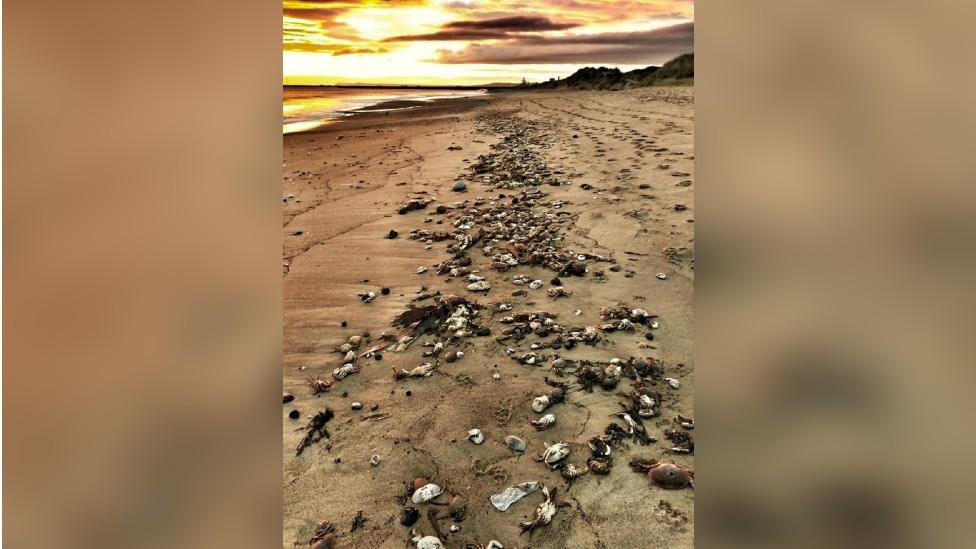
Carcasses of thousands of crabs were found at beaches including Seaton Carew
A marine pollution expert has disputed findings that an "algal bloom" was to blame for the deaths of tens of thousands of shellfish and crabs.
The Department for Environment Food & Rural Affairs (Defra) has been investigating after the animals washed up on the North East coast last year.
On Thursday it said algae was to blame.
But Tim Deere-Jones found Environment Agency data which showed quantities of the chemical pyridine were more than 70 times higher in some crab samples.
Mr Deere-Jones, a pollution researcher and consultant of more than 30 years, compiled a report on behalf of Whitby Fishermen's Association after submitting a Freedom of Information request to the government department.
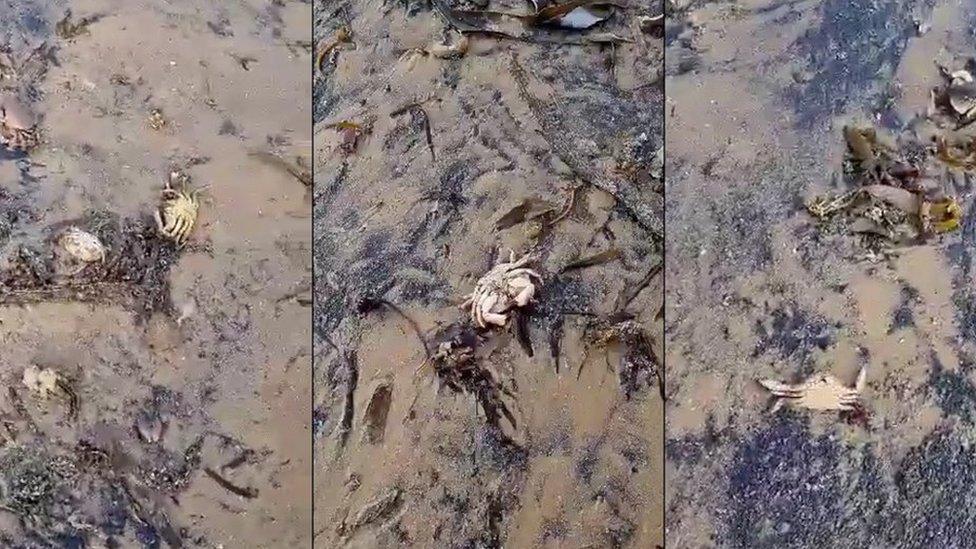
Thousands of crabs and other marine animals washed up dead along the Teesside coast last year
He said: "The Environment Agency must have analysed for several hundred different chemicals, most of which were there in .0-something quantities, some of which were in quantities up to the tens, but what really stood out was pyridine, which was present up to 450-plus.
"Apart from being astonished that nobody picked up that this one chemical was there in such quantities, I was astonished that nobody suggested that there be further work."
Pyridine is a smelly colourless liquid used as an anti-corrosion treatment in marine infrastructure and is also released as an industrial waste product.
The Environment Agency tested several crab samples and found 439mg/kg of pyridine in one from Saltburn, and 203mg/kg in Seaton, compared with 5.9mg/kg in a control sample from Cornwall. Other North East samples were lower though.
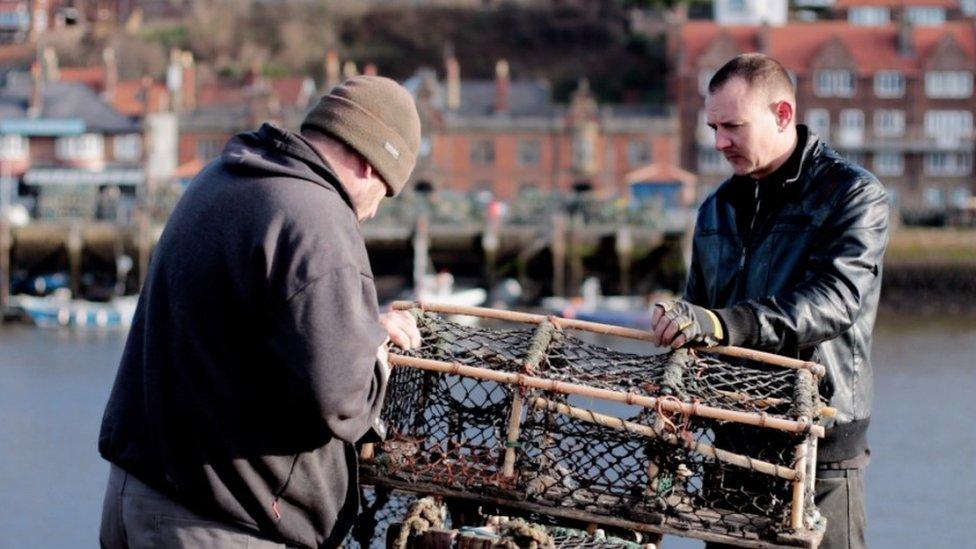
Fishermen say the shellfish deaths have had an impact on the industry
Mr Deere-Jones said the River Tees was a potential source because of several possible ways the chemical could enter the local waters.
"You've got a busy port with plenty of opportunities for it to enter the marine environment," he said.
"We haven't got crabs and lobsters dying in, say, Newcastle, so it's to do with something happening in and around the mouth of the Tees."
Defra previously ruled out dredging activity as a likely cause, however, Mr Deere-Jones claims his report "casts doubt" on that conclusion.
"We had a very feeble attempt to suggest it was an algal bloom but I debunked that quite quickly," he added.
"There was marine algae out there but it wasn't really what you'd call a bloom, and nobody took any samples to prove it was a lethal algal bloom."
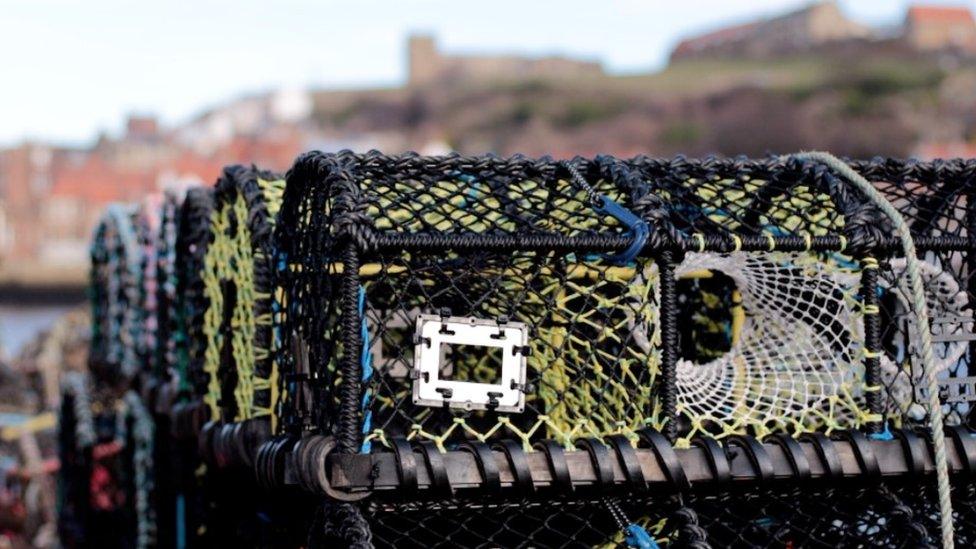
The situation has been described as a "death knell" by some fishermen
Sir Robert Goodwill, Conservative MP for Scarborough and Whitby, said he would be meeting Defra and the minister responsible next week to discuss the situation.
He said if new evidence came to light "then we should definitely keep an open mind".
"Algal blooms are quite common but usually associated with warmer weather," he said, adding: "I will ask them what is the degree of certainty they have regarding the cause."
'Crab tissue'
The BBC asked Defra why pyridine levels were more than 70 times higher in one North East sample, how Defra ruled that out as a cause and why dogs had been getting sick on beaches.
Defra said it understood "the concern of the local fishing industry" and had completed a "thorough investigation" of the dead shellfish.
"Significant testing and modelling has ruled out a number of potential causes including chemical pollution, sewage, animal disease or dredging. The most likely cause of the deaths seems to be a naturally occurring, harmful algal bloom," a spokesperson said.
"Our sampling established that no pyridine was present in the water or sediment samples we collected but was detected in crab tissue from both impacted areas and non-impacted areas elsewhere in the country.
"As such, any levels detected in crab tissue are likely to be linked to biological processes and not necessarily from the environment."

Follow BBC North East & Cumbria on Twitter, external, Facebook, external and Instagram, external. Send your story ideas to northeastandcumbria@bbc.co.uk, external.
Related topics
- Published3 February 2022
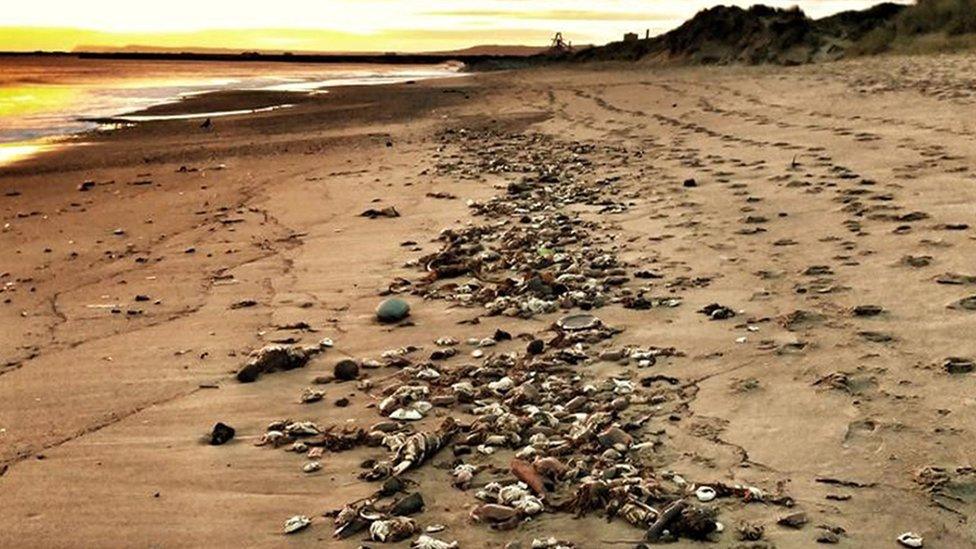
- Published21 January 2022
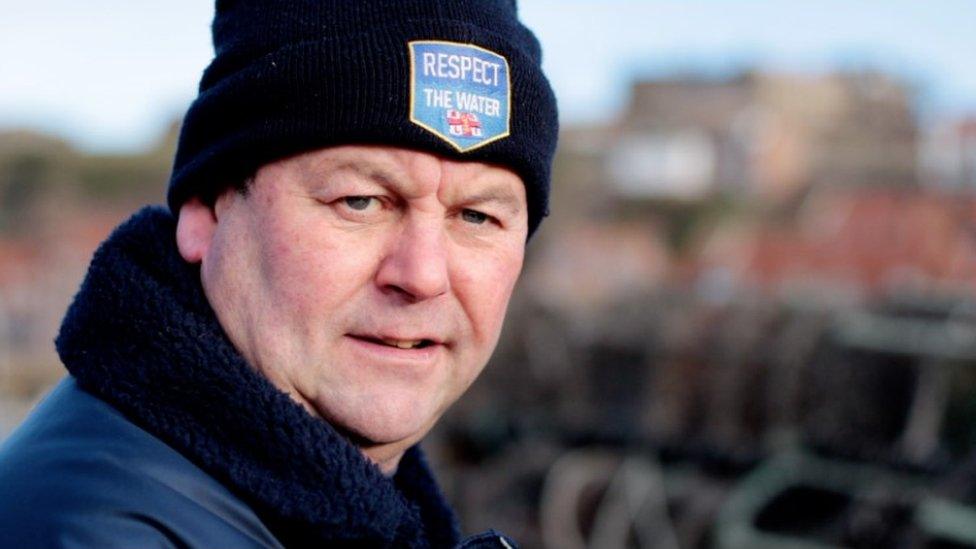
- Published4 November 2021
